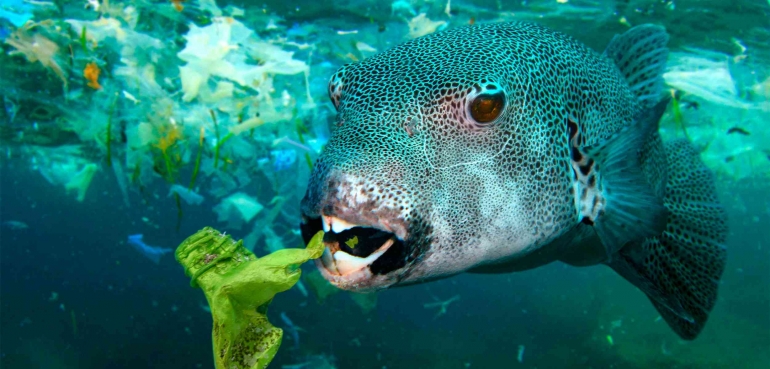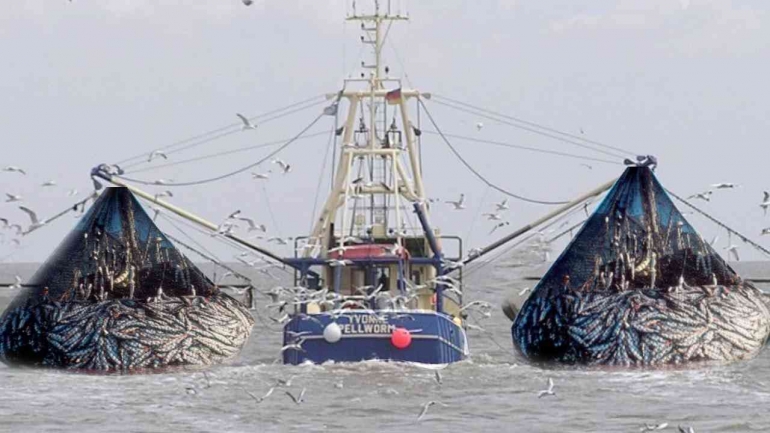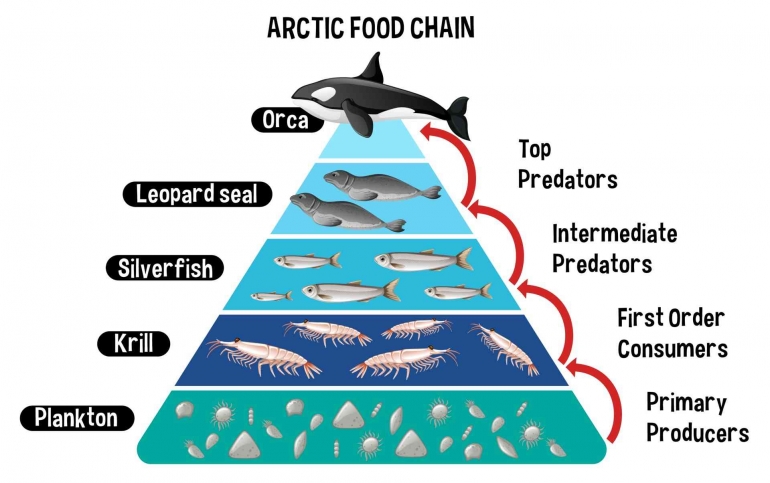By: Muhammad Naufal Rachim & Zhafran Bimo Dary Adi
Jakarta, July 26 2023-Sea fish is very dangerous for both the body and the environment. In the simplest form, sea fish are fish species that live in seawater that have body fluids with lower salt content than the salt levels in their environment. But unfortunately, due to excessive human greed, the number of fish in the sea is decreasing due to large-scale fishing activities.
We can see an example of tuna. In 2014 alone, 600,000 metric tons of tuna have been caught in our own country, Indonesia. This makes Indonesia the country with the most tuna fishing in 2014, while in the second place is Japan, with catches of more than 400,000 metric tons (Galland et al.,2016).
Actually, fish is a good portion of food for the body. There are various kinds of vitamins, proteins, and minerals in it. For example, omega-3 can reduce the risk of heart disease and stroke. Fish is also a source of food that contains many ingredients that are important for body growth, especially for babies (Herliafifah, 2021).
Nevertheless, it is no longer relevant if we still rely on fish to have a good intake for the body, because omega-3 can be found in soybeans, in every 50 grams, it contains 721 milligrams of omega-3 which has exceeded 100% of the recommended daily intake (Puji, 2021). these are the reasons why we should reduce consumption or even stop eating sea fish.
1. Sea fish contain mictoplastic

It is clear that sea fish is no longer relevant to fulfill nutritional needs, and also, sea fish can harm the environment and human body; first thing first, fish can become a disease that can be harmful to human bodies when consuming it because of the microplastics. It's no longer a secret that plastic invades every last corner of the world's oceans, with huge piles of trash floating in the middle of the oceans. According to National Geographic, microplastics can interfere with normal hormone function, contribute to weight gain, interfere with brain development in fetuses and children, and can even cause cancer or birth defects. These disturbances are common in endocrine and flame retardants in microplastics. In this situation, we can no longer rely on marine fish to fulfill our nutritional needs because we can get dangerous diseases.
2. Oceans are destroyed due to large-scale fishing

Trawling is the most destructive form of fishing. According to Ali Tabrizi, the bottom trawler sweeps around 3.9 billion hectares every year, this is equivalent to losing 4,316 football fields every minute. In fact, 93% of all the world's CO2 is stored in the oceans with the help of marine vegetation, algae and corals. Therefore, marine plants are very important in the absorption of carbon dioxide on earth, if marine plants are reduced or even absent, the earth will accept extreme climate change as soon as possible.
3. Large-scale fishing can damage food chain

Large-scale fishing can damage the food chain which will have an impact on climate change. According to Sophie Yeo, whales forage in the deep sea, then return to the surface to breathe and excrete. The iron-rich manure is perfect for the growth of phytoplankton, which annually absorbs four times the amount of carbon dioxide from the Amazon rainforest, and produces up to 85% of the oxygen we breathe. In fact, in Taiji Japan, killing apex predators such as dolphins and whales are pest control, the fisherman in Taiji saw the dolphins are competition because dolphins eat too much fish. When fishermen overfish the predator, there's not enough food for apex predators.
Above all, eating sea fish has many harmful effects both in terms of the health of the human body itself and the environment. In other words, if we don't eat marine fish, it is tantamount to not supporting excessive fishing activities in the sea, with that we hope the fishing industry will decrease, and large-scale fishing will also decrease.
Work Cited
Tabrizi, A. (2021). Seaspiracy. A.U.M. Films Disrupt Studios.
Herliafifah, R. (2021, July 30). 9 Jenis Ikan yang Bagus untuk MPASI Bayi. Hello Sehat. https://hellosehat.com/parenting/bayi/gizi-bayi/ikan-untuk-mpasi/
Galland, G. Rogers, A. Nickson, A. (2016, May 2). Netting Billions: A Global Valuation of Tuna. The PEW Charitable Trusts. https://www.pewtrusts.org/en/research-and-analysis/reports/2016/05/netting-billions-a-global-valuation-of-tuna
Puji, A. (2021, November 5). 8 Sumber Makanan Terbaik Yang Kaya Asam Lemak Omega-3. Hello Sehat. https://hellosehat.com/nutrisi/fakta-gizi/makanan-yang-mengandung-omega-3/
Royte, E. (2018, June). We Know Plastic Is Harming Marine Life. What About Us? National Geographic. https://www.nationalgeographic.com/magazine/article/plastic-planet-health-pollution-waste-microplastics
Baca konten-konten menarik Kompasiana langsung dari smartphone kamu. Follow channel WhatsApp Kompasiana sekarang di sini: https://whatsapp.com/channel/0029VaYjYaL4Spk7WflFYJ2H









